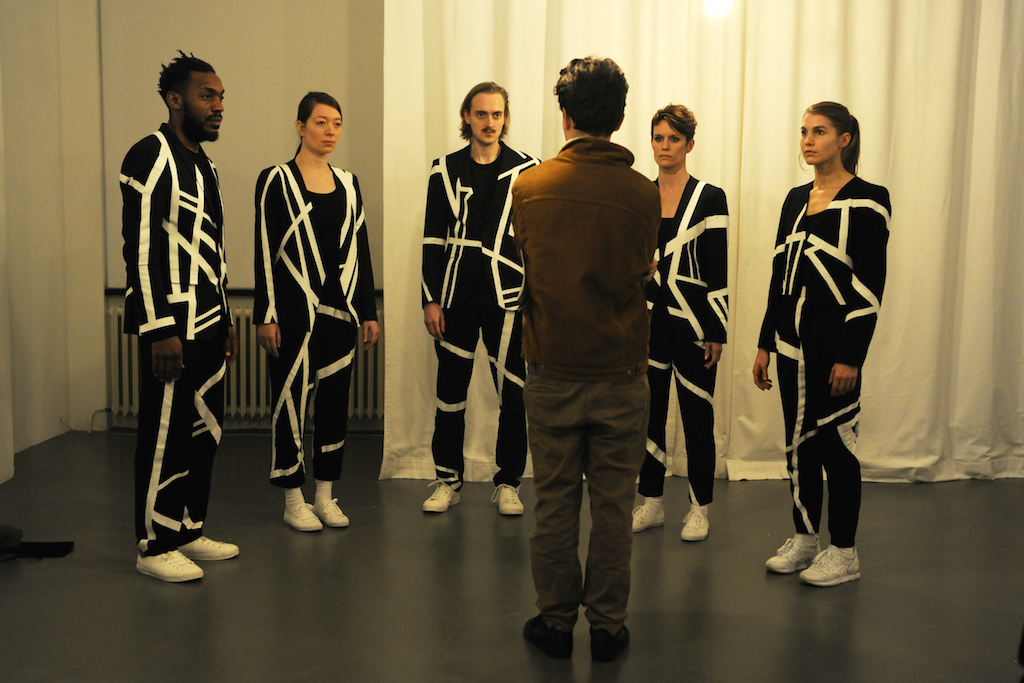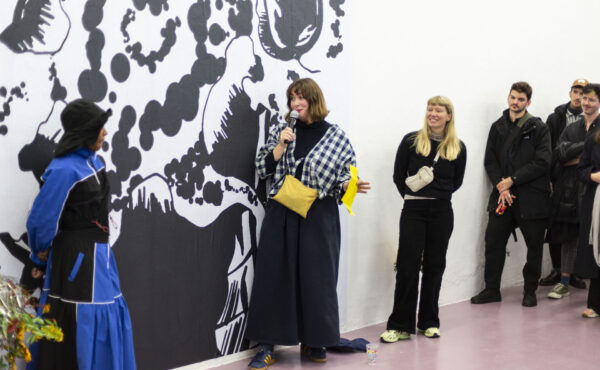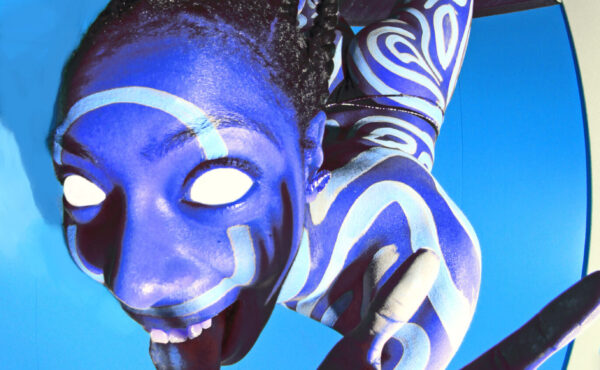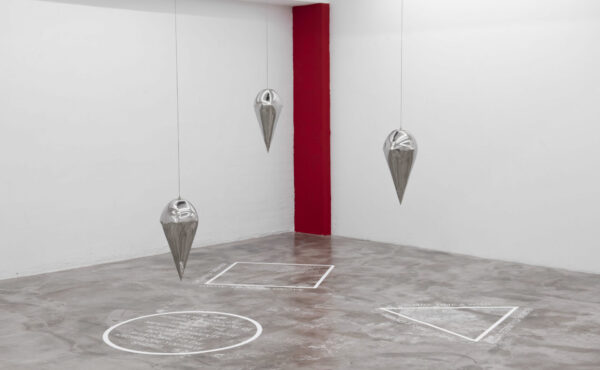
‘The gill in my proverbial wetsuit’ Michael Portnoy

You shuffle en masse with the crowd of strangers through the hall. This time: reverberations of non-descript electronic music; a party is getting started down the corridor. Turning the corner, you see a red velvet rope – club style, manned by another white-zigzagged pantsuit, framed by tall potted palms, their fronds arching gracefully against the contrasting white/black interior. A strobe light excitedly gleams above, blinkering your train of thought, you can only wonder at what awaits on the other side of the rope…
Later, a woman’s voice trilling: “Run through the wind with your hands on my Timmy Tim Tim.”
Another room, a single performer telling a story, while dancing: “Hi, I’m Anal Leek. I’m an underage Japanese girl. I have a motor disease. I also have a leek inside of my anus. I was discarded in an industrial dumpster outside the Stedelijk museum because I deviated from my programmed role in a piece by Toni Seagull stolen from Phillipe Parreno and Pierre Huyghe. Would you like to know how I deviated from my role?”

Occupying six spaces at Witte de With Contemporary Art Center, Relational Stalinism – The Musical comes into being through an unfolding of roving acts. Seemingly unrelated, together they form an absurdist extravaganza of music, dance and physical theater. Yet, its playful carefree delivery belies its political potency. Pushing at the limits of communication, and interrogating the human technology of language, Relational Stalinism – The Musical, reveals what we (should) already know. The human capacity for communication is far stranger and more generative than we perhaps are willing to imagine. Inherent in the technology of language is a poetics: an ability to occupy the space of communication while at the same time escaping the order of exchangeability. Commenting on another of his recent works, 27 Gnosis, Michael Portnoy describes the attempt to get at an “experiential knowledge, rather than theoretical knowledge, or epistemology. A kind of dense, robust, poetic knowledge.” [4]
This line of thought reminds me of something said by Franco Berardi in his recent treatise, The Uprising: “Money and language have something in common: they are nothing and they move everything. They are nothing but symbols, conventions, flatus vocis, but they have the power of persuading human beings to act, to work, to transform physical things.”
I have of late been preoccupied with the recent multimedia performances of two American politicians, Sarah Palin and Donald Trump. What is both fascinating and disturbing about their recent activities is that the original is more compelling than any attempted satirical rendition. Could this be a bizarre and potentially historical turn in politics wherein political satire falters because the real thing is already so solidly absurd? Describing Trump’s recent victory speech in New Hampshire the New York Times quips, “he sounded like a sketch comic doing an imitation of himself. His style has rendered him, weirdly, almost comedy-proof. Election parodies traditionally exaggerate candidates. But Mr. Trump exaggerates himself.” [5] The Art of the Deal master embraces the art of satire. Meanwhile, here is a line from Sarah Palin’s recent speech: “You farm families, and teachers, and teamsters, and cops, and cooks. You rock ‘n’ rollers. And holy rollers! All of you who work so hard. You full-time moms. You with the hands that rock the cradle.” There is an efficacy, a sensibility in this nonsense, rhyming and rhythmic speech. It need not be rendered logically intelligible for it to create an affect. As Berardi puts it: “Effectiveness, not truth value, is the rule of language in the sphere of communication”. [6] An embodied refrain, a satirical gesture, a poetic ramble, are slippery indeed: they rely on the audience’s interpretive imagining. Such a vibration creates resonances, offering a potential site for struggle and solidarity.

Angela Jerardi


